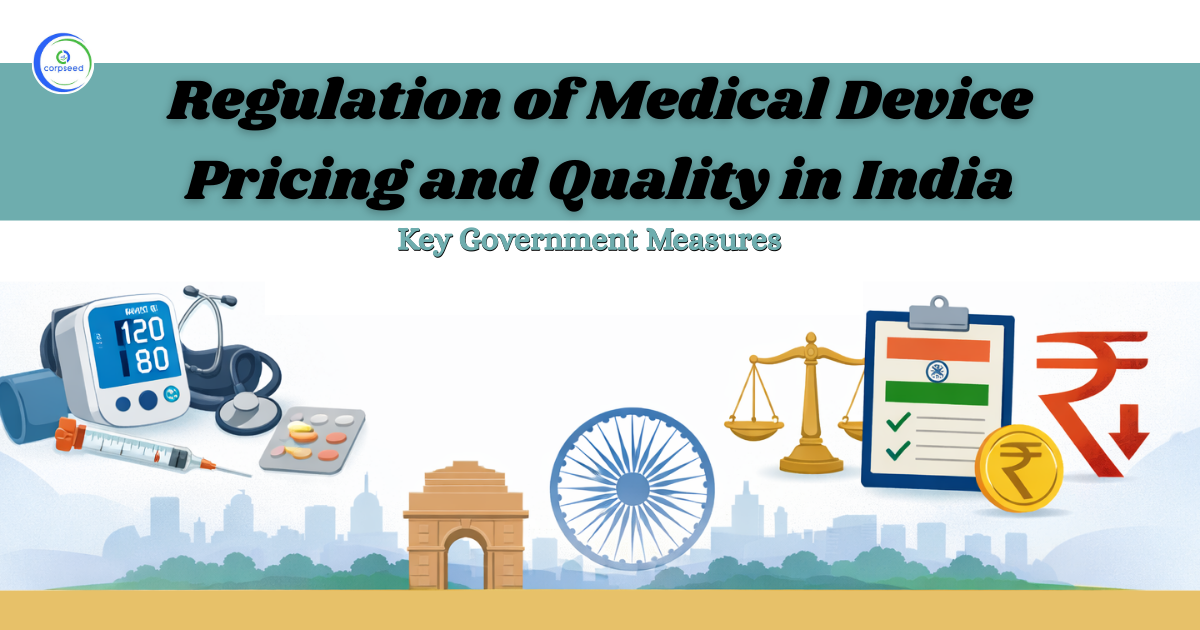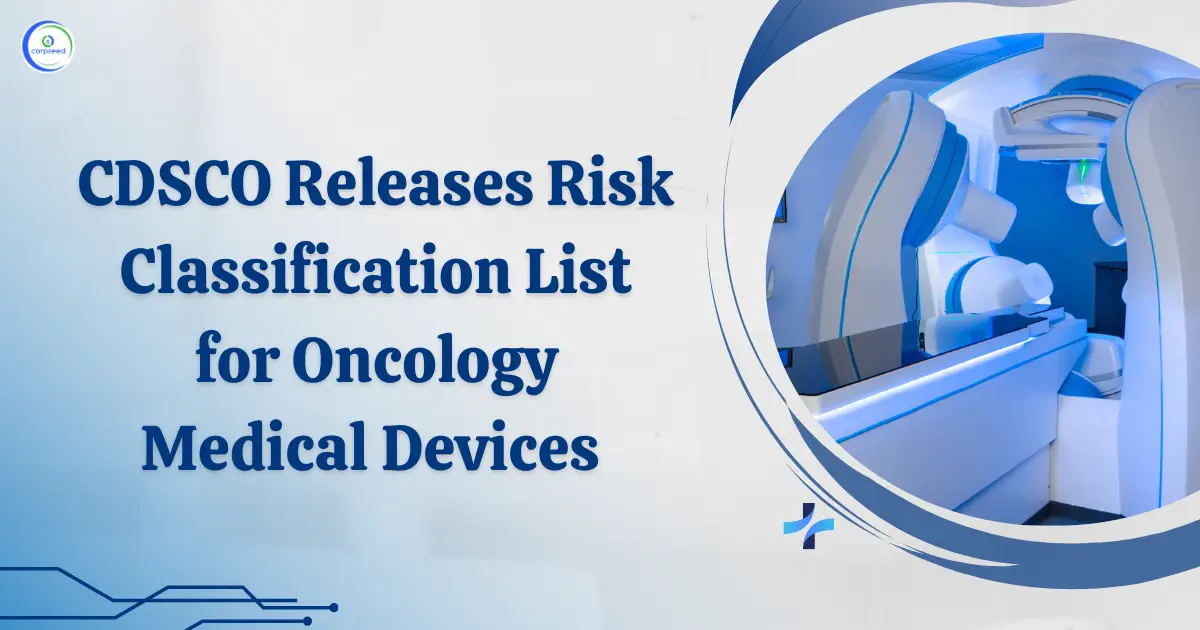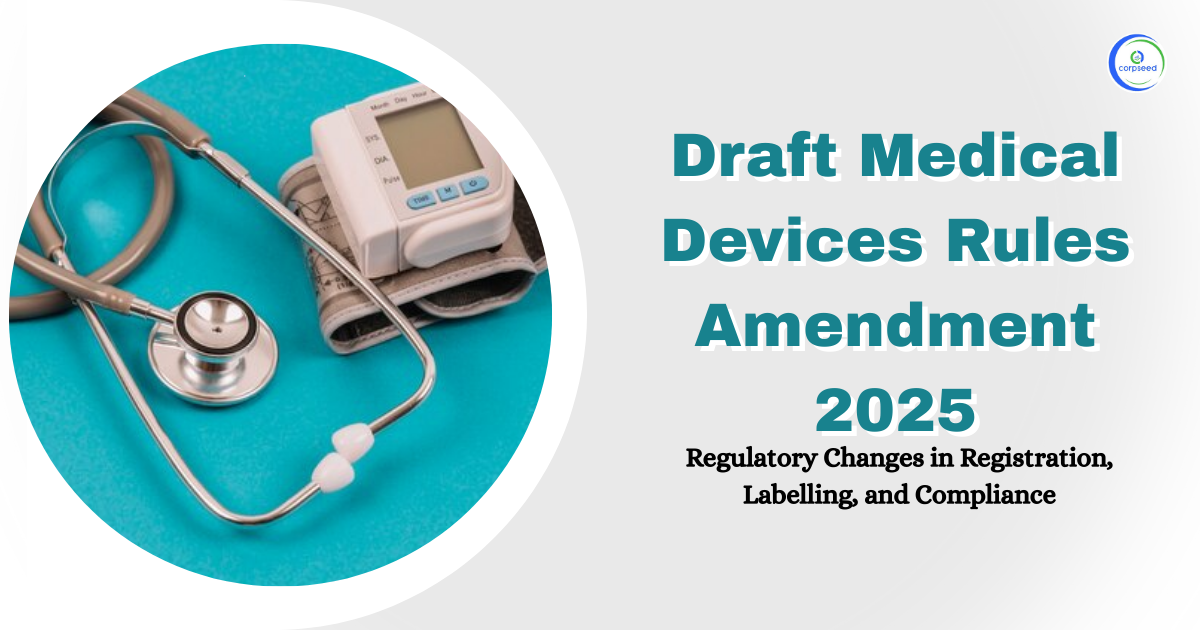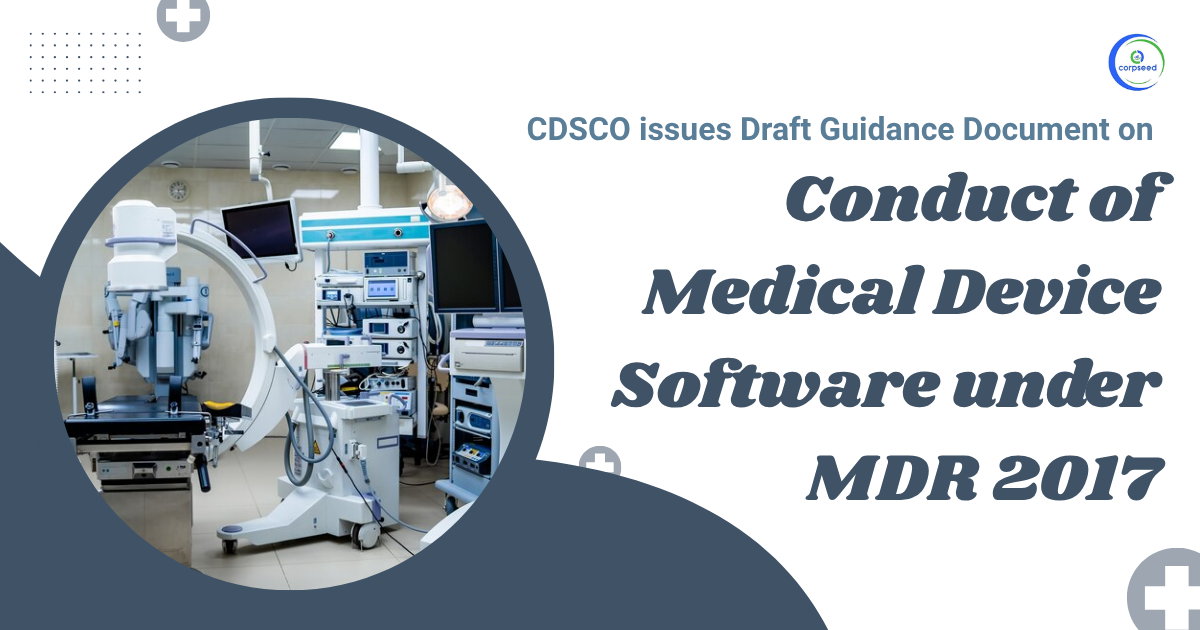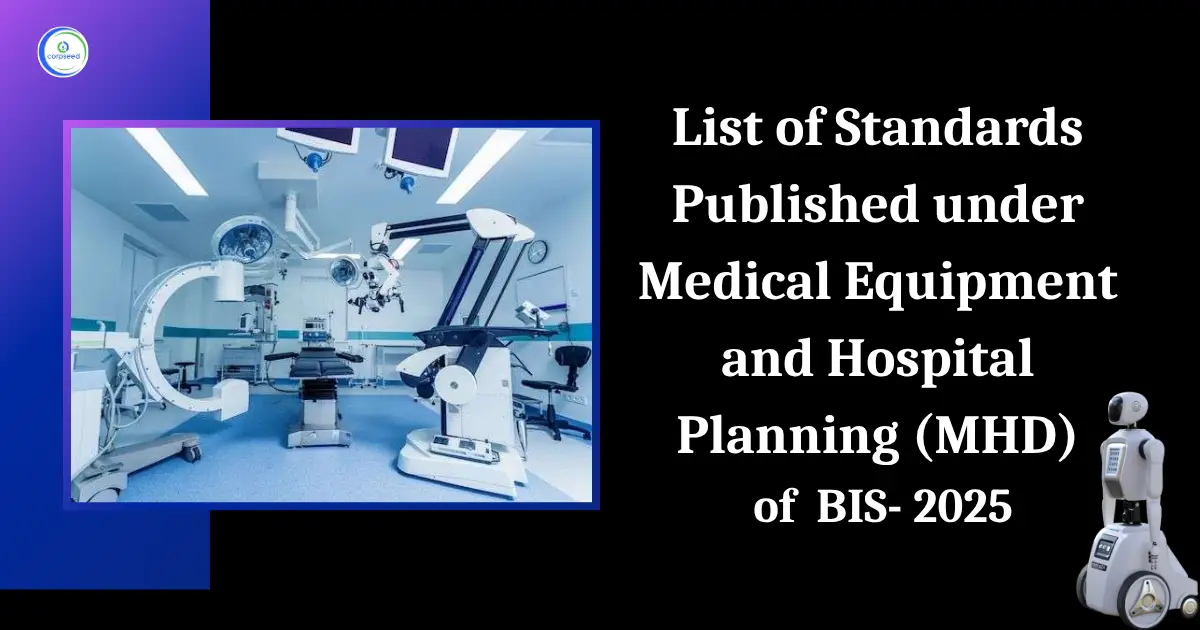Introduction
The Central Drugs Standard Control Organisation (CDSCO) is a part of the Ministry of Health and Family Welfare, Government of India, and serves as the National Regulatory Authority for businesses dealing in the medical sector. CDSCO is responsible for approving drugs and clinical trials, setting standards for drugs, ensuring the quality of imported drugs, and coordinating with State Drug Control Organizations to enforce the Drugs and Cosmetics Act and relevant rules. Pharmaceutical Companies dealing in medical drugs, equipment and other supplies are required to obtain Form 44 CDSCO Registration under the latest New Drugs and Clinical Trial Rules of 2019. In this article, we will be explaining all the rules and all the changes made recently to the process of approval of new drugs by the Central Drug Standard Control Organisation.
Table of Contents
--------------Blog Contact Form-------------
What is a New Drug?
The term ‘new drug’ is defined under rule 3(w) of the New Drugs and Clinical Trials Rules, 2019. It requires CDSCO certification before the release into the market. Pharmaceutical Companies cannot market or distribute a new drug without a CDSCO certificate. Five different kinds of drugs are defined as new drugs.
- A drug having a pharmaceutical ingredient or phytopharmaceutical drug, which has not been used in the country to any significant extent and has not been approved as safe and efficacious
- A drug approved by the Central Licencing Authority for certain claims and proposed to be marketed with modified or new claims
- A fixed-dose combination of two or more drugs, approved separately for certain claims and proposed to be combined for the first time in a fixed ratio, or where the ratio of ingredients in an approved combination is proposed to be changed with certain claims
- A modified or sustained release form of a drug or novel drug delivery system of any drug approved by the Central Licencing Authority
- A vaccine, recombinant Deoxyribonucleic Acid (r-DNA) derived product, living modified organism, monoclonal antibody, stem cell-derived product, gene therapeutic product or xenografts, intended to be used as a drug
Note: The first three types of drugs shall continue to be new for a period of four years from the date of their approval while the remaining two drugs shall always be deemed to be new drugs.
Why Is the New Drug Approval Policy and Form 44?
Post-pandemic, we've realized the strain diseases place on both our health system and economy. The impact on population health is significant, emphasizing the crucial need for safe and effective drugs. Rigorous checks are essential before releasing new drugs for disease prevention and treatment. CDSCO authorization plays a key role in assuring the public that approved drugs are safe and effective, supporting the efficient production of new drugs in the country. For this, the manufacturers and importers need to take the licence under form 44 of the drug rules. These rules also streamline clinical studies and investigations, providing essential information to enhance access to safe and effective products. The regulatory authority ensures the safety of those participating in studies, and adherence to regulatory requirements is vital for drug development and approval. The generation and evaluation of scientific data are essential for assessing the efficacy of new drugs.
Laws Applicable on New Drug Approval
The Drugs & Cosmetics Act of 1940, supplemented by the drug rules of 1945 prescribed for the new drug approval and licence under form 44. It was mainly enacted for the import, manufacture, distribution and sale of drugs. The act prescribes the pharmaceutical companies to get the licence under Form 44 for new drug import, manufacture and undertake clinical trials. Drug Rules were first enacted in 1945 which govern the licencing of drugs then finally comes the latest New Drugs and Clinical Trials Rules, 2019. It prescribes provisions regarding new drugs and clinical trials to be conducted for the testing of those new drugs. A committee formed by the Ministry of Health and Family Welfare revamped the drug regulatory system, resulting in a new policy by CDSCO. This policy outlines the approval process for new drugs, requiring a CDSCO Certificate, CDSCO License, and CDSCO authorization.
Application for New Drug Approval (NDA)
The sponsor has to design a New Drug Application which is called NDA for short. NDA should answer three main questions as given below-
- It has to be mentioned and explained whether the new drug provides any clinical benefit.
- It has to be clarified whether any associated risk outweighs the benefits of the proposed indication.
- It has to be assured that the product can be manufactured with assured quality and batch-to-batch consistency.
Before the submission of the NDA, CDSCO should have a discussion with the applicant where the applicant can present a summary. This discussion will help reviewers to include the information in the NDA. A clear request shall be added to the NDA in the following special cases-
- If the sponsor seeks exemption from a local clinical trial.
- If the sponsor seeks approval under an accelerated approval process.
In both the above cases a rationale & justification should be provided with the regulatory provision under which such exemption is sought. An accelerated approval process shall only be used in case the drug shows significant advances over an existing treatment or any unmet medical need. The following points must also be kept in mind while submitting an NDA Application-
- Ensure submissions of applications for clinical trials, new drug approvals and CDSCO Registration are concise, correct, consistent, and clear. It must be well-indexed comprehensive and readable.
- Clear and well-presented submissions enable timely evaluation, while difficult-to-evaluate submissions may require more time for corrections, leading to delays in decision-making.
- Applications for new drugs and clinical trials should be submitted in CTD format only, as per ND & CT rules.
- It is the responsibility of the applicant to submit data that meets the requirements of ND&CT Rules, 2019 for the review and approval of safe and effective drug products.
In addition, the NDA should have a cover letter that mentions any relevant correspondence or meetings by date and topic. It should also have a comprehensive summary that includes the most important information about the drug, along with conclusions drawn from the presentation. This summary should cover each technical section, discuss the benefits and risks of the drug, provide information on the non-Indian marketing history of the drug, and include a copy of the proposed package insert. Finally, the application can be submitted for CDSCO Certification and the permission to import and manufacture new drugs is granted through Form 44.
CDSCO Authorization Form 44 in the New Drug Approval Process
CDSCO Form 44 Authorisation in the new drug approval process involves the following stages-
Application Submission
Central Drug Standard Control Organization (CDSCO) has to review the application and determine whether it is complete or not. CDSCO should either accept or reject the application filed under Form 44 within the prescribed time. If there is a rejection then grounds of rejection have to be mentioned in the application and it must be sent back to the applicant. And if the application is accepted then it has to undergo concurrent review. As per standard procedure, all clinical and non-clinical data has to be reviewed in consultation with the Subject Expert Committee.
Review and Rectification
If deficiencies are found during the review, CDSCO should notify the applicant within the prescribed timelines and the applicant has to furnish the required information as soon as possible. After conducting a medical and scientific review, the drug product should be reviewed in consultation with the SEC (Subject Expert Committee). Based on the recommendations of the SEC and the review, CDSCO will make a decision on whether to approve the drug or not, in accordance with the New Drugs & Clinical Trials Rules, 2019.
Final Approval
While the recommendations of the SEC are not binding for CDSCO, It has the authority to override the opinion of the SEC with written details of the reasons for doing so. CDSCO should prepare a Summary Basis of Approval for a new drug in case of approval of the Form 44 application. This summary should contain a summary of CMC, non-clinical, clinical data, and other relevant information based on which the drug is being considered for approval.
Validity of Global Clinical Trials in CDSCO Certification
The landscape of clinical trials has evolved significantly, transitioning from primarily single-country endeavours to a globalized approach to the development of drugs. This shift, driven by factors such as diverse patient populations, research infrastructure availability, and cost considerations, has led to the acceptance of data from Global Clinical Trials (GCTs) by the Central Drug Standard Control Organization (CDSCO).
However, this acceptance comes with the condition that detailed guidance documents must justify the need for global clinical data and demonstrate its adequacy for new drug approvals in the country. Notably, India's participation in these trials is not a determining factor. Sponsors bear the responsibility of planning and designing GCTs in accordance with the New Drugs & Clinical Trials Rules, 2019, to enhance the acceptability of GCT data in regulatory submissions, underscoring the importance of regulatory compliance in the evolving landscape of international drug development.
Conclusion
These were the new drug approval rules published by CDSCO and it is evident that it plays a crucial role in promoting new drug development and ensuring the availability of safe and effective drugs in the country. To achieve this, CDSCO needs to work collaboratively and cooperate with industry, academia, and other stakeholders. It should also dedicate efforts to provide regulatory information and educate all persons involved in new drug development while enhancing communication and accessibility of relevant regulatory information. Efficiently conducting CDSCO meetings as per established procedures will also facilitate the development of safe and effective new drugs in the country. By prioritizing these actions, It can contribute to the advancement of the healthcare ecosystem in India.
This portion of the site is for informational purposes only. The content is not legal advice. The statements and opinions are the expression of author, not corpseed, and have not been evaluated by corpseed for accuracy, completeness, or changes in the law.
BOOK A FREE CONSULTATION
Get help from an experienced legal adviser. Schedule your consultation at a time that works for you and it's absolutely FREE.
.webp)

